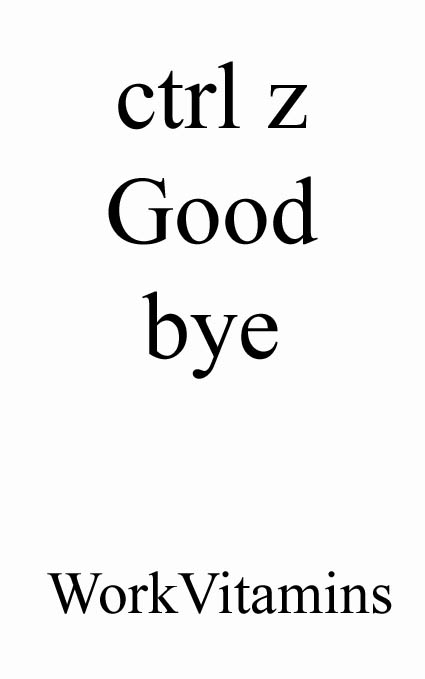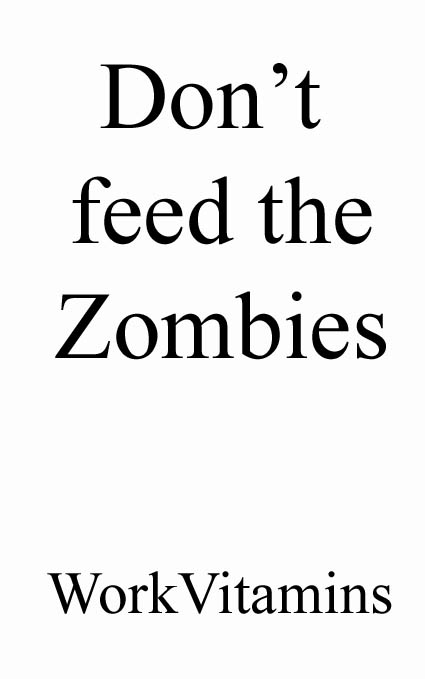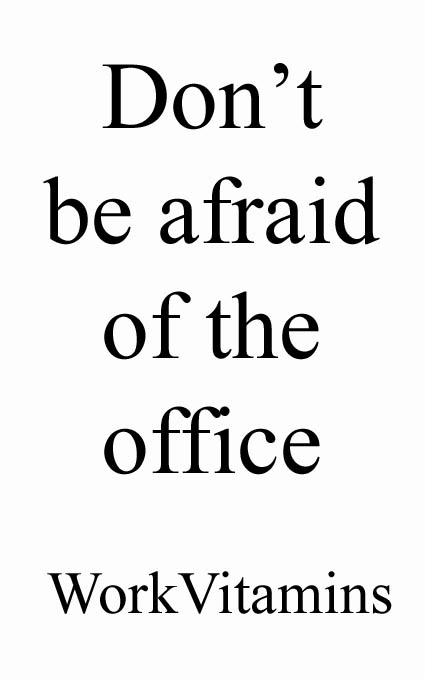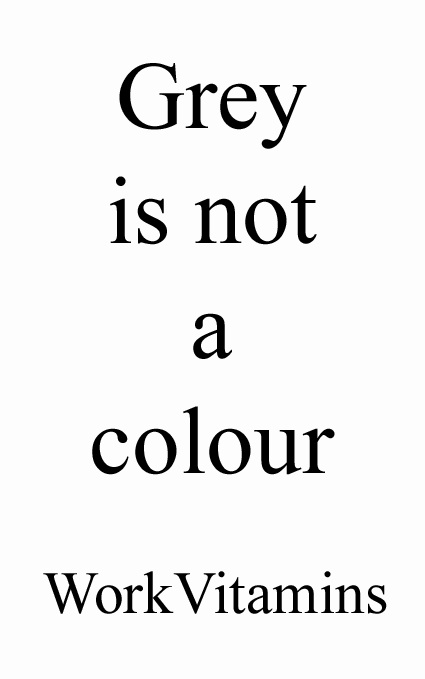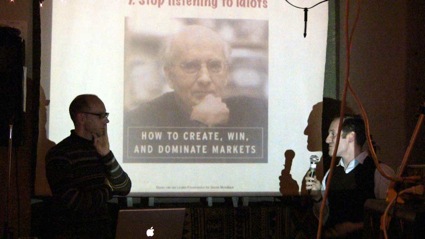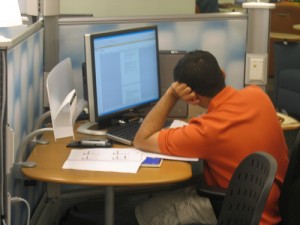Twitwee Clock from Haroon Baig on Vimeo.
Storage is for the insecure
crtl Z, goodbye
‘ feed the zombies
‘t be afraid of the office
Grey is not a colour
The smell of fear
A smell you sometimes smell in offices is fear. It seems now that humans can actually smell this according to this article in The Guardian:
“People can unconsciously detect whether someone is stressed or scared by smelling a chemical pheromone released in their sweat, according to researchers who have investigated the underarm secretions of petrified skydivers.”
The research was funded by US Defence Advanced Research Projects Agency and the military might want to use it as a weapon…
Dr Lilianne Mujica-Parodi at Stony Brook University in New York State stated that: “We demonstrate here the first direct evidence for a human alarm pheromone … our findings indicate that there may be a hidden biological component to human social dynamics, in which emotional stress is, quite literally, ‘contagious’.”
Yet another reason to inject some WorkVitamins in the office!
Happy for Work
Europeans work less than Americans and have longer holidays according to this article in the WSJ (subscription needed)
By almost every measure, Europeans do work less and relax more than Americans. According to data from the Organization for Economic Co-operation and Development, Americans work 25% more hours each year than the Norwegians or the Dutch. The average retirement age for European men is 60.5, and it’s even lower for European women. Our vacations are pathetically short by comparison: The average U.S. worker takes 16 days of vacation each year, less than half that typically taken by the Germans (35 days), the French (37 days) or the Italians (42 days).
. . .
For most Americans, work is a rock-solid source of life happiness. Happy people work more hours each week than unhappy people, and work more in their free time as well. Even more tellingly, people with more hours per day to relax outside their jobs are not any happier than those who have less non-work time. In short, the idea that our heavy workloads are lowering our happiness is twaddle.
. . .
This may be one reason why Americans tend to score better than Europeans on most happiness surveys. For example, according to the 2002 International Social Survey Programme across 35 countries, 56% of Americans are “completely happy” or “very happy” with their lives, versus 44% of Danes (often cited in surveys as the happiest Europeans), 35% of the French and 31% of Germans. Those sweet five-week vacations and 35-hour workweeks don’t seem to be stimulating all that much félicité. A good old-fashioned 50-hour week might be a better option.
‘s
I gave a presentation at Green Monday’s yesterday. Thanks to Rob Oudendijk for the pictures.

Yes, you can die of boredom
A recent study of 7,000 London civil servants *yawn* has found out that one *yawn*Â can die of boredom. You can’t actually die of boredom, but boredom leads to less motivation which can lead to depression, leading to heart problems leading to death…
“Someone who is bored may not be motivated to eat well, exercise, and have a heart-healthy lifestyle. That may make them more likely to have a cardiovascular event,” said Dr. Christopher Cannon, an associate professor of medicine at Harvard University and spokesman for the American College of Cardiology.
He also said if people’s boredom was ultimately linked to depression, it wouldn’t be surprising if they were more susceptible to heart attacks; depression has long been recognized as a risk factor for heart disease. Cannon also said it was possible that when people are bored, dangerous hormones are released in the body that stress the heart.”

